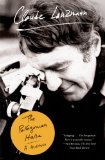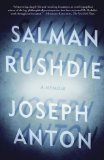Summary | Excerpt | Reviews | Beyond the book | Read-Alikes | Genres & Themes | Author Bio

A Memoir
by Claude LanzmannIn these pages, Lanzmann composes a hymn to life that flows from memory yet has the rhythm of a novel, as tumultuous as it is energetic.
"Even if I lived a hundred lives, I still wouldn't be exhausted." These words capture the intensity of the experiences of Claude Lanzmann, a man whose acts have always been a negation of resignation: a member of the Resistance at sixteen, a friend to Jean-Paul Sartre and a lover to Simone de Beauvoir, and the director of one of the most important films in the history of cinema, Shoah.
In these pages, Lanzmann composes a hymn to life that flows from memory yet has the rhythm of a novel, as tumultuous as it is energetic. The Patagonian Hare is the story of a man who has searched at every moment for existential adventure, who has committed himself deeply to what he believes in, and who has made his life a battle.
The Patagonian Hare, a number-one bestseller in France, has been translated into Spanish, German, Italian, Hebrew, Polish, Dutch, and Portuguese. Claude Lanzmann's brilliant memoir has been widely acclaimed as a masterpiece, was hailed as "a true literary and historic event" in the pages of Le Monde, and was awarded the prestigious Welt-Literaturpreis in Germany.
Besides having been a brave soldier, a tireless traveler and mountain climber, and a lover to many women, [Lanzmann] was - and continues to be - a consummate writer. His energy and passions literally leap from the page. Never is this a memoir about overcoming adversity, though he has suffered many sorrows and hardships. It is a joyous, sobering, and relentless testament to Sartre's statement, "Man is condemned to be free... because once thrown into the world, he is responsible for everything he does."..continued
Full Review
 (575 words)
(575 words)
(Reviewed by Judy Krueger).
In 1974, Claude Lanzmann took a leave from journalism to begin work on his landmark, nine-and-a-half hour long film about the Holocaust, Shoah (1985). As he explains in an interview with NPR (March 2012), he chose the title Shoah (Hebrew for "catastrophe") because he dislikes the word "holocaust," which translates as "a burnt religious sacrifice." He couldn't see for which Gods so many innocent people had been killed. The word shoah was less familiar, inexplicit, and not as easily understood. It more accurately depicted his feelings about such a terrible event. He reflects that, "...the truth is that there is no name for what happened."
 In contrast with many other works concerning the Holocaust, Shoah contains no historical ...
In contrast with many other works concerning the Holocaust, Shoah contains no historical ...

If you liked The Patagonian Hare, try these:

by Salman Rushdie
Published 2013
How do a writer and his family live with the threat of murder for more than nine years? How does he go on working? How does he fall in and out of love? How does despair shape his thoughts and actions, how and why does he stumble, how does he learn to fight back? In this remarkable memoir Rushdie tells that story for the first time; the story of one...

by Amos Oz
Published 2012
A portrait of a fictional village, by one of the world's most admired writers.